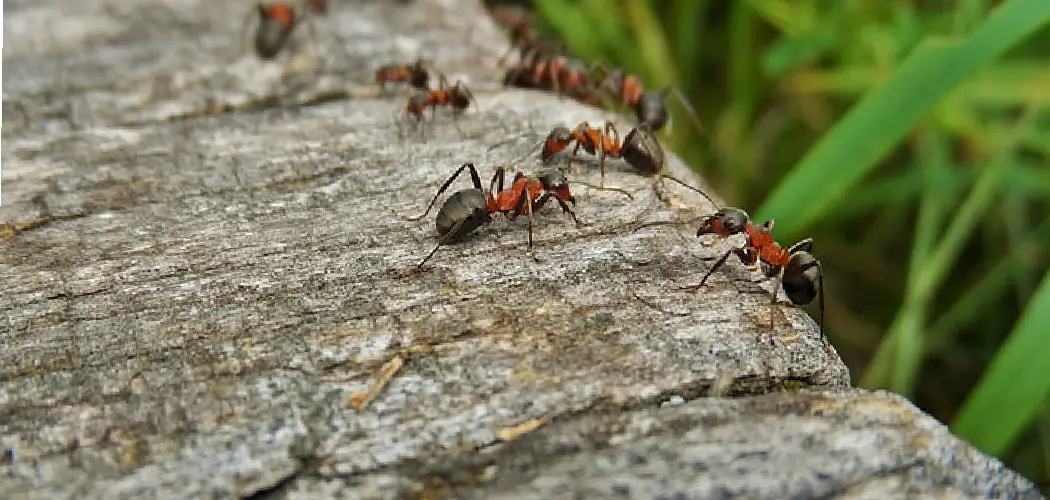If you’re a garden enthusiast, there’s nothing more annoying than watching all of your hard work be disrupted by the little pests we know as ants. Fortunately, getting rid of them doesn’t have to be at the expense of your plants.
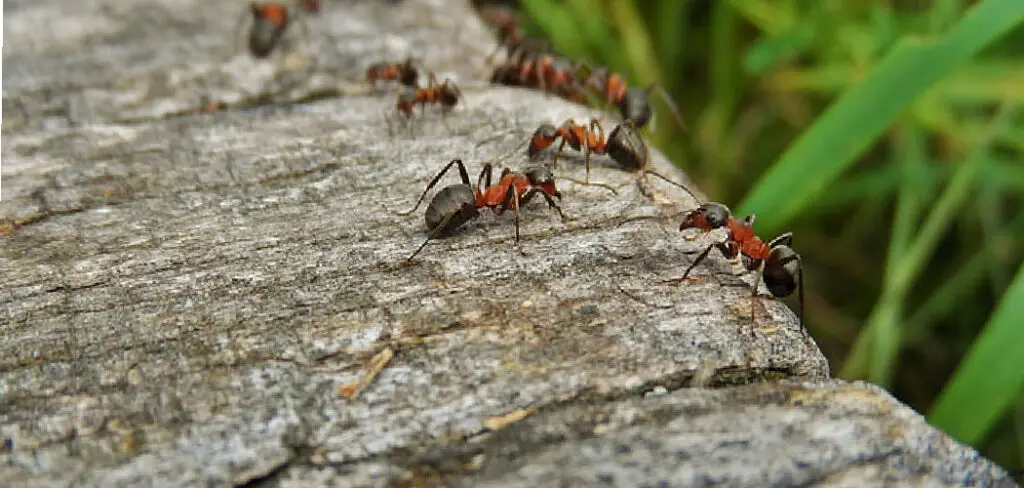
In this post, we’ll go over how to kill ants in garden bed, some common home remedies, and store-bought solutions that can help keep those pesky critters from destroying your carefully tended flower beds or vegetable patches. With a bit of knowledge and careful application, these methods should make sure that you can maintain an ant-free environment for many seasons to come!
Will Vinegar Kill Ants in the Garden?
The answer to this question is yes, vinegar can be used as an effective ant killer in the garden. Vinegar is a natural insecticide that has acetic acid, which is toxic to ants. When sprayed directly on ants, the acetic acid will kill them. It’s also known to repel ants and other insects. It can be used both indoors and outdoors to get rid of ants in the garden.
When using vinegar as an ant killer, it’s important to use a mixture of water and vinegar rather than straight vinegar. This will make it more effective because the acetic acid is more diluted. The ratio should be 1 part vinegar to 3 parts water.
To use vinegar as an ant killer in the garden, mix the solution and spray it directly onto ants or their trails. It’s important to repeat this regularly as needed until the insects are gone. You can also pour it around areas where you think ants may be entering your home or garden for added protection.
If you’re using vinegar as an ant repellent, you can spray it around the perimeter of your garden or along trails where ants are likely to enter. The smell will deter them from entering.
Vinegar is a safe and effective way to kill ants in the garden. It’s also an environmentally friendly option since it’s natural and free of chemicals. However, be sure to use a diluted solution and keep it out of the reach of children and pets. Taking these precautions will help ensure you get rid of ants in the garden without any negative side effects.
10 Methods on How to Kill Ants in Garden Bed
1. Using Boiling Water
One of the simplest and most effective ways to kill ants in your garden bed is to boil water. Boiling water will kill any ants that it comes into contact with, including the queen. Be sure to pour the boiling water directly onto the nest so that as many ants are killed as possible.
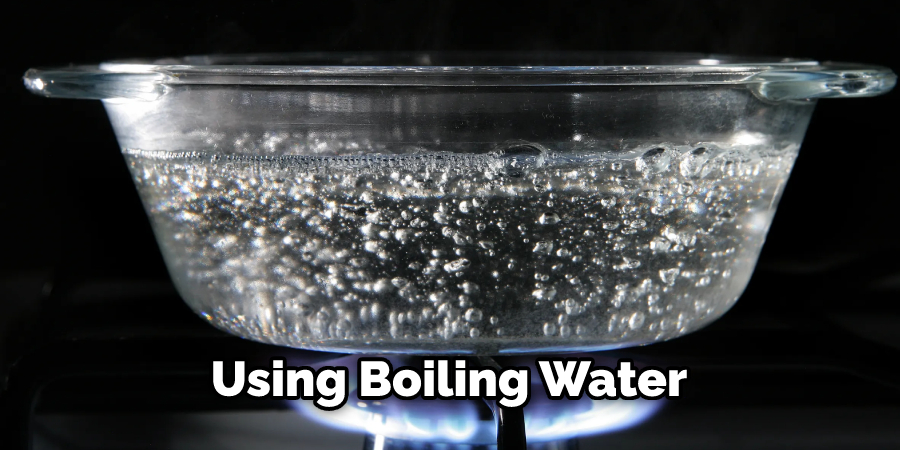
To prevent the ants from coming back, make sure to pour boiling water over the entire area where the ant nest is located. If you have a large infestation, you may need to repeat this process multiple times.
2. Using Vinegar
Another effective way to kill ants in your garden bed is to use vinegar. Vinegar is a natural ant repellent, so it will keep ants away from your plants. You can either spray vinegar directly onto the ants or around the perimeter of your garden bed. The smell of the vinegar will repel the ants and keep them from coming into your garden.
Additionally, you can use a mixture of equal parts water and vinegar and spray the mixture directly onto ant mounds in your garden bed to get rid of them. The acidic nature of the vinegar will kill the ants and discourage others from entering the area. Be sure to reapply the vinegar every few days to keep ants away.
3. Using Insecticidal Soap
Insecticidal soap is another great way to kill ants in your garden bed. Insecticidal soap is a natural insecticide that will kill ants on contact. It is generally easy to find in home and garden stores, as well as online. To use the insecticidal soap, mix it with water according to the product instructions and spray it directly on the ants.
Once the soap has dried, the ants should be dead, and your garden bed will be protected from future ant invasions. Although insecticidal soap is generally safe to use, it is important to always read and follow the product instructions carefully. If you are applying the insecticidal soap in an area near food, you may want to cover the edible plants or move them away from the area while applying.
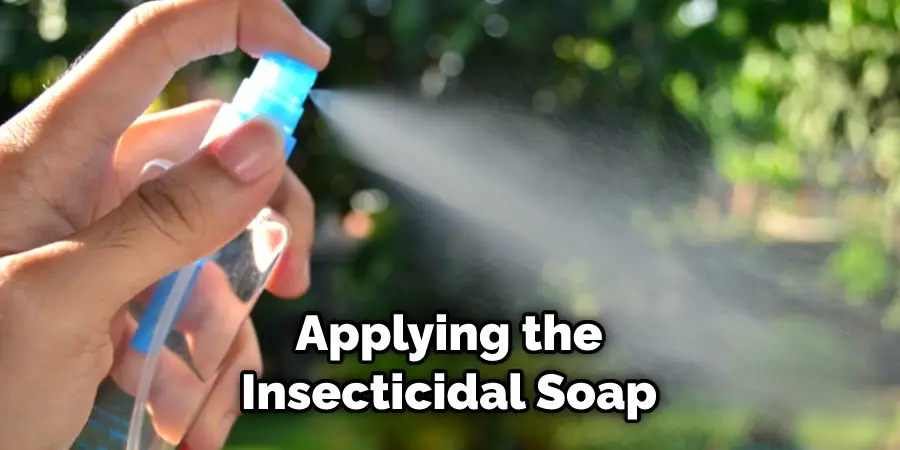
4. Using Diatomaceous Earth
Diatomaceous earth is a powder made from fossilized algae that can be used to kill ants in your garden bed. The powder works by absorbing the oils and waxes from an ant’s exoskeleton, causing them to dehydrate and die. To use it, sprinkle the dust directly onto any ant hills or trails you may have in your garden bed.
It is best to reapply after each rain, as moisture will cause the powder to lose its effectiveness. Be sure to wear a dust mask and gloves when applying diatomaceous earth. Also, it is important to note that diatomaceous earth will not repel ants, so you may need to use it in conjunction with other ant control methods.
5. Using Boric Acid
Boric acid is another effective way to kill ants in your garden bed. Boric acid works by causing an ant to become dehydrated and eventually die. You can either sprinkle boric acid around the perimeter of your garden bed or make a bait station using boric acid and sugar. To make a bait station, mix two tablespoons of boric acid with one cup of sugar and three cups of warm water.
Place the mixture in an empty jar or a plastic container with holes poked in the lid. Place this bait station around your garden bed, and the ants will be attracted to it, ingesting the mixture and eventually dying. Boric acid is a very effective way to kill ants but can also be dangerous if ingested by humans or pets. Use caution when using this method.
6. Using Cornmeal
Cornmeal is a natural ant killer that works by causing an ant to become bloated and eventually die. To use cornmeal in your garden bed, spread it around the affected area and water it down. The ants will eat the cornmeal and become bloated, eventually leading to death. Be sure to reapply the cornmeal regularly, as rain will wash it away. Additionally, it may take several applications before you begin to see results.
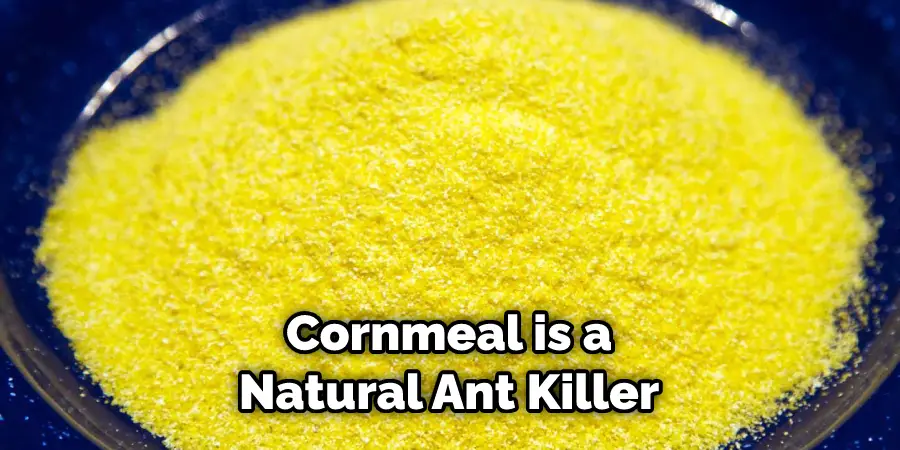
7. Using Cinnamon
Cinnamon is another natural ant repellent that works by keeping ants away from your plants. Sprinkle cinnamon around the perimeter of your garden bed or make a paste out of cinnamon and water and spread it directly onto the nest. The ants will be repelled by the strong smell of cinnamon, and leave your garden bed alone. You can also try using essential oils with a similar scent, such as tea tree, peppermint, or citrus. These strong scents will act as a natural deterrent to keep ants away from your plants.
8. Using Cucumber Peelings
Cucumber peelings are a great way to keep ants out of your garden bed. The smell of the cucumber peelings will naturally repel ants and keep them away. Simply scatter a few pieces around your garden bed, or place them near ant trails that you may have noticed around your garden.
This method is safe and natural, making it a great option if you want to avoid using more harsh chemical methods. If you find that the cucumber peelings are not providing enough protection, you can also sprinkle a light dusting of diatomaceous earth around your garden bed. This will provide an extra layer of protection and help keep the ants away.
9. Using Coffee Grounds
Coffee grounds are an effective way to get rid of ants in your garden bed because they contain caffeine, which is toxic to ants. To use coffee grounds as an ant killer, spread the grounds evenly around the perimeter of your garden bed and any other areas where ants may be entering your garden.
Additionally, you can mix coffee grounds with water and use a spray bottle to disperse the solution in areas where ants are present. Coffee grounds should be replaced every few days in order to remain effective. Be sure to keep coffee grounds away from any plants or vegetables you may have grown, as caffeine can be harmful to them as well.
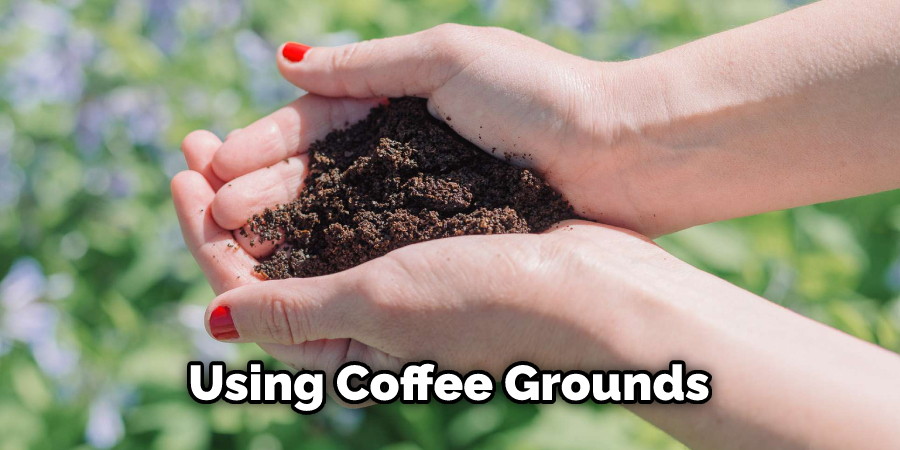
10. Using Salt
Salt is another great way to kill ants in your garden bed. Sprinkle salt directly on the ant trails and around the base of any potted plants. The salt desiccates the ants, meaning it dries them out and kills them. The salt also disrupts the ant trails and makes it difficult for the ants to find their way back to your garden bed. Be careful not to over-salt your soil, as this can cause harm to the plants.
If you want to use salt on a regular basis for ant control, consider creating an ant barrier instead. Sprinkle salt in a circle around the perimeter of your garden bed and renew it each time it rains or when you see ants emerging again. This will keep the ants out of your garden bed while keeping your soil in good condition.
Some Common Mistakes When Killing Ants in Garden Bed
1. Choosing the Wrong Technique:
There are various techniques for killing ants in garden beds, such as insecticides, traps, and baits. However, not all techniques are suitable for the job. For example, insecticides can be dangerous for other living organisms, such as plants or pets, that may be in your garden bed and should only be used under specific circumstances.
2. Not Preparing the Bed Properly:
Before using any technique to kill ants, you should make sure that the garden bed is properly prepared. This means removing rocks, leaves, and any other debris from the area so that you can get to the source of the infestation.
3. Not Identifying The Species:
Some ants are more resilient than others and require specific techniques for their removal. It’s important to identify the species of ant that is invading your garden bed before taking any action.
4. Not Applying Homemade Remedies Properly:
Using homemade remedies such as vinegar and dish soap can be an effective way to get rid of ants, but it’s important to apply them properly in order for them to work. If not used correctly, these remedies may not be as effective as they could be.

5. Ignoring Other Areas:
Killing the ants in the garden bed is only half the battle; there may also be other areas nearby that need attention if you want to ensure the complete removal of the infestation. Make sure to check other areas around your garden bed and tackle any potential issues in order to get rid of the ants completely.
What Is the Best Homemade Ant Killer?
When it comes to killing ants in your garden bed, there are a few homemade solutions you can try. Some of the more popular ones include borax, vinegar, and essential oils.
Borax is a natural mineral that has the ability to kill ants on contact. It can be mixed with sugar and water to create an ant bait that attracts the pests, then kills them when they consume it. This method is effective but should be used sparingly and in areas where kids and pets are not present.
Vinegar is a good option for killing ants as well, though it doesn’t work as quickly as borax. It’s effective because the vinegar smell masks their trail markers and discourages them from coming back to your garden bed. You can spray or wipe it around the perimeter of the area or directly on the ants.
Essential oils are also a natural way to get rid of ants in your garden bed. Oils like peppermint, eucalyptus, and tea tree oil are all effective at killing pests while also leaving behind a pleasant scent.
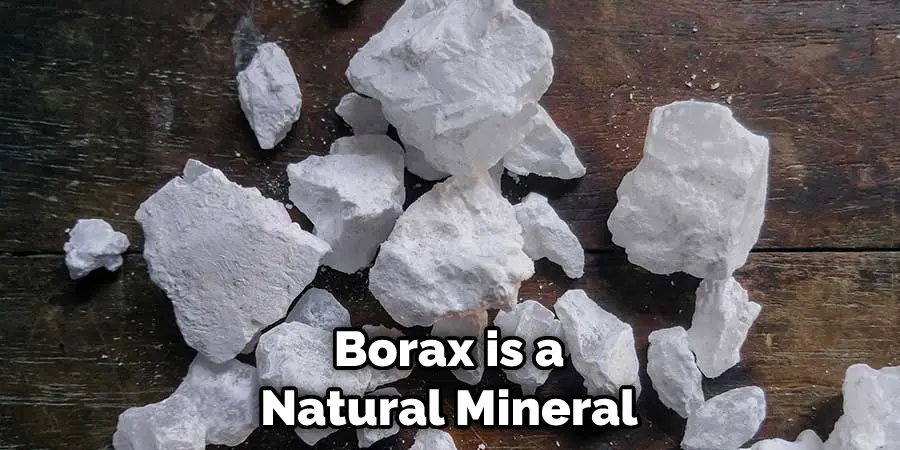
Conclusion
If you find ants in your garden bed, don’t despair. There are a few things you can do to kill them and keep them away for good. Try any of these methods on how to kill ants in garden bed and see which works best for you. And remember, if all else fails, there’s always the tried-and-true method of just squishing them with your fingers.

